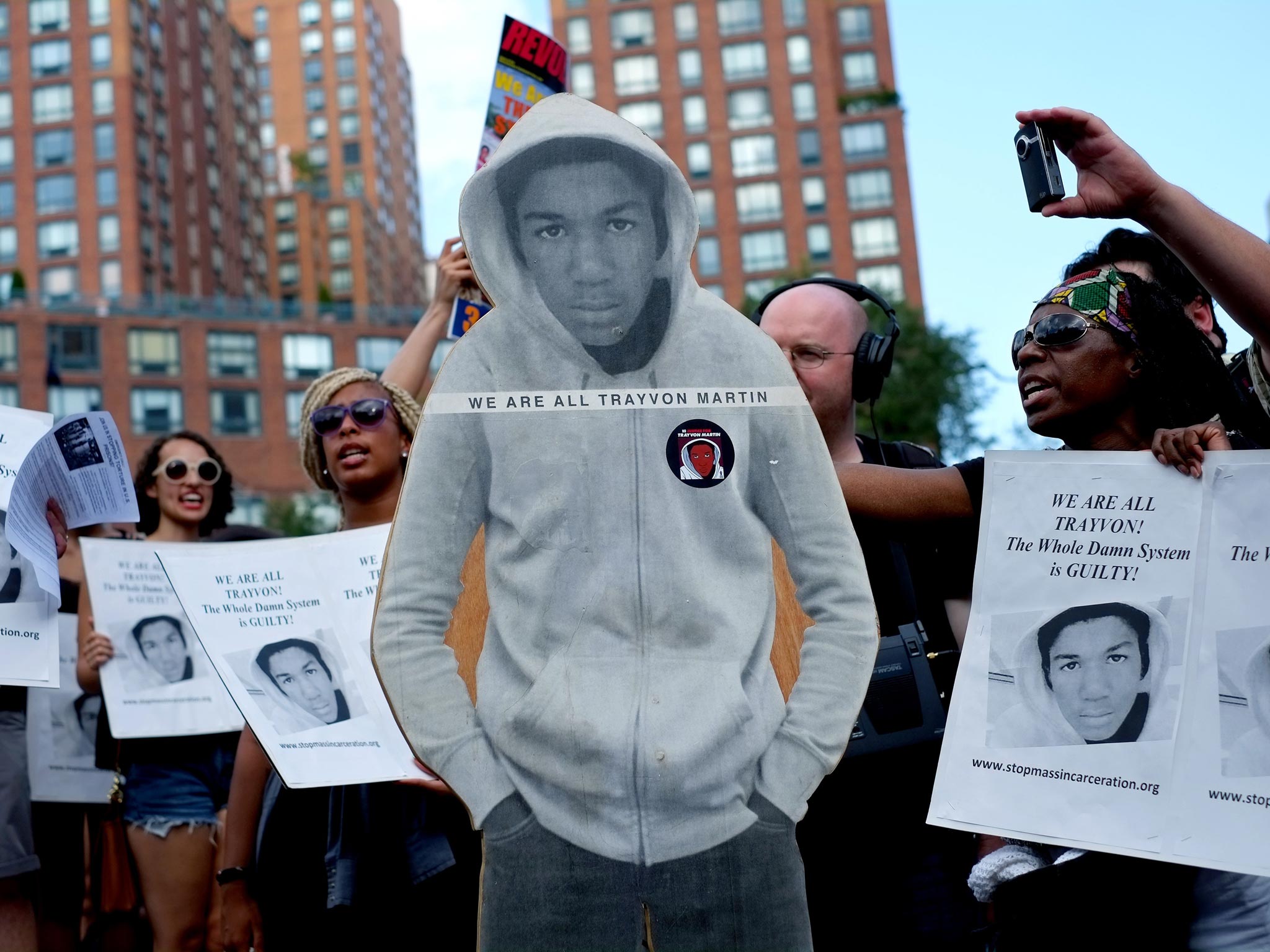How NRA lobbied for 'Stand Your Ground' law that let Trayvon Martin killer George Zimmerman free
‘Stand Your Ground’ legislation provides a defence that is difficult to overcome

Now that George Zimmerman has been cleared of all charges in the killing of Florida teenager Trayvon Martin, he intends to reclaim the gun he used to shoot dead the unarmed 17-year-old.
According to his lawyer, Mark O’Mara, Mr Zimmerman needs a firearm to protect himself now “even more” than before. Speaking to ABC News on Sunday, O’Mara said Mr Zimmerman, 29, “feels, truly in his heart, that if he did not have that weapon [on the night of the shooting] he might not be here”.
At the heart of the debate surrounding the case was Florida’s so-called Stand Your Ground law, which allowed Mr Zimmerman not simply to carry that gun and use it, but to escape being charged until six weeks after the killing – and only then due to a public outcry.
The law, which supposedly protects citizens who kill in self-defence, was created not at the behest of concerned Florida citizens, but by the gun lobby, the National Rifle Association (NRA), a powerful right-wing policy group called the American Legislative Exchange Council (ALEC), and a handful of pliant politicians. Since it was introduced in Florida in 2005, it has spread to 24 more US states.
Professor Robert Spitzer, a political scientist and author of several books on the NRA, says: “The real culprit in the Trayvon Martin case was not Zimmerman but Stand Your Ground. It’s why the police did not investigate aggressively, it’s why it took six weeks to bring charges against Zimmerman, and it’s why his self-defence claim was extremely difficult to overcome. Stand Your Ground makes not only prosecution, but even mere investigation, very difficult.”
The original Stand Your Ground legislation was crafted by state lawmakers who stuck closely to guidelines set by Marion Hammer, a Florida-based former president of the NRA. After it was signed into law by the then Florida Governor, Jeb Bush, in April 2005, the NRA’s chief executive, Wayne LaPierre, described it as the “first step of a multi-state strategy”. Its passage was smoothed by ALEC, a conservative network whose backers include the NRA, Walmart and organisations linked to the right-wing billionaire industrialists David and Charles Koch.
Stand Your Ground offers immunity not only to homeowners, but to people who open fire in public places, and those pleading self-defence need not retreat from anyone they perceive as a threat before shooting. As in the Trayvon Martin case, the burden is on police and prosecutors to prove that a self-defence claim is false.
Steve Jansen is the Vice President and Chief Operating Officer of the Association of Prosecuting Attorneys, who says his members nationwide encounter Stand Your Ground issues daily. “If a police officer or someone in the military is engaged in a shooting, they go through a process to ensure that shooting was justified,” he says. “Yet we are granting both criminal and civil immunity to citizens who don’t have nearly the same levels of firearms training as police officers.”
Within six years of the law’s introduction, the number of so-called “justifiable homicides” in Florida had increased threefold. But the law offered no protection to Marissa Alexander, 31, from Jacksonville, who last year was convicted of aggravated assault with a deadly weapon and sentenced to 20 years in prison for firing a warning shot to ward off her abusive husband. No one was injured in the incident. Alexander, who is black, cited Stand Your Ground to no avail.
The spread and persistence of the law may be a major political success for the NRA, but it has resulted in some blowback for its supporters. Not long after the Trayvon Martin shooting, several major corporate sponsors withdrew their backing from ALEC, including McDonald’s, Coca-Cola, Pepsi and Kraft. In April 2012, the group finally scrapped the task force responsible for pushing Stand Your Ground.
Join our commenting forum
Join thought-provoking conversations, follow other Independent readers and see their replies
Comments